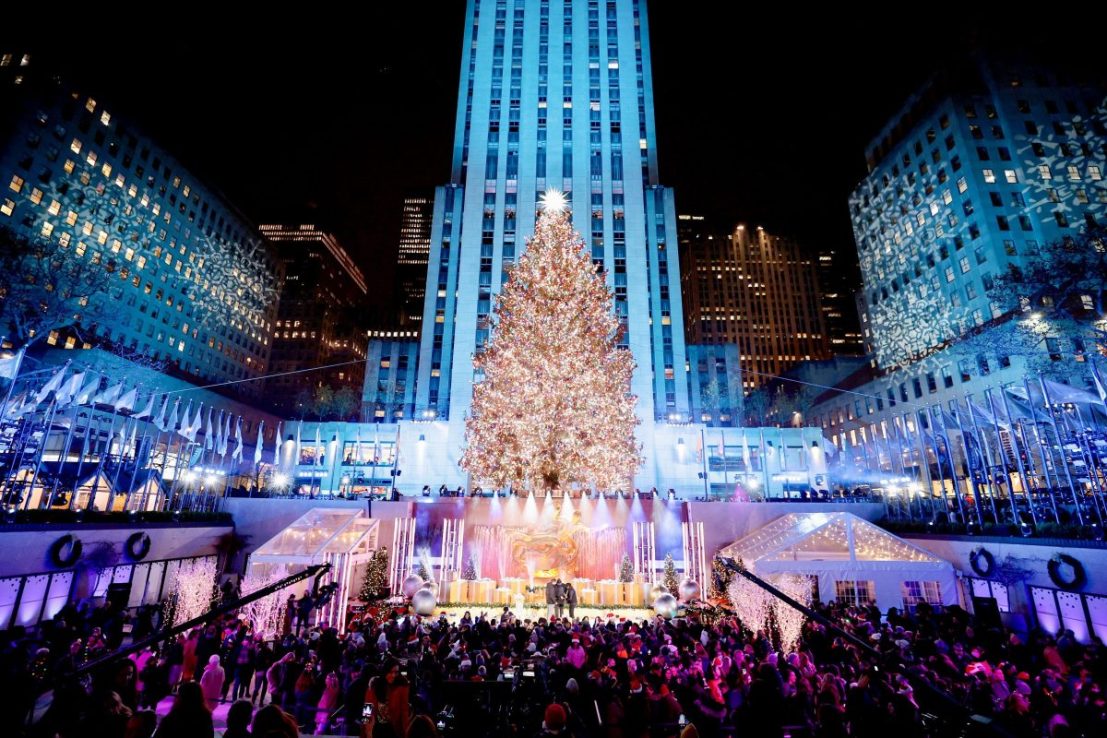London risks losing its crown to New York
The city that never sleeps is outpacing London – where pubs close at 10.30pm – on almost every measure. Even its Christmas tree is bigger, says Emma Revell As we enter December, London should come into its own. The lights are up on Oxford Street, the Christmas tree has arrived in Trafalgar Square and the [...]


The city that never sleeps is outpacing London – where pubs close at 10.30pm – on almost every measure. Even its Christmas tree is bigger, says Emma Revell
As we enter December, London should come into its own. The lights are up on Oxford Street, the Christmas tree has arrived in Trafalgar Square and the office Christmas parties are spilling out into the streets of Soho. But only if they’re very well behaved, quiet, and happy to drink up before midnight.
The idea London is a 24-hour city is oft-repeated but, I would argue, fairly deservedly mocked. Despite the best efforts of Sadiq Khan and his incredibly well remunerated former night czar Amy Lamé to utter the phrase at every conceivable opportunity, Christmas revellers hitting the capital this year will struggle to truly make a night of it.
And yet even as someone who has pointed out that a place where the pub opposite Waterloo Station calls last orders at 10.30pm cannot in all good conscience be considered a 24-hour city, being confronted with a real one is eye-opening.
What a 24-hour city looks like
I recently had the good fortune to be able to visit New York for the first time and 30 years of consuming American film and television did not prepare me for the city that never sleeps. Near constant traffic flowing past numerous 24-hour Dunkin’ Donut stores bathed in the almost nuclear glow of Times Square on a rainy night was a shock to the senses for someone more used to seeing Leicester Square Greggs having to challenge Westminster City Council in court for the right to serve reheated hot food – but not freshly cooked, heaven forbid – past 11pm. That was just an ordinary Tuesday. I can only imagine what New York has to offer now Thanksgiving is done and Christmas celebrations begin in earnest. For a start, and no offence to the Norwegians who kindly gift us the Trafalgar Square tree every year, but at 20m it pales in comparison to the Rockefeller Centre’s glittering 25m-high offering.
But New York doesn’t just outpace London as a provider of fun. The city is a much bigger threat to our financial services. What America does better than any country on earth is embrace the idea that founding, growing and potentially selling a business is one of the most productive and useful things a person can do. New York’s iconic skyline is dominated by business and industry and as much as Canary Wharf or the Square Mile may try to compete, they are at genuine risk of being left behind.
What America does better than any country on earth is embrace the idea that founding, growing and potentially selling a business is one of the most productive and useful things a person can do
In the UK, our government seems determined to batter and undermine London’s reputation as a financial centre just as much as London councils are trying to strangle its nightlife. Just last week, Just Eat announced it would be abandoning the London stock exchange by the end of 2024, citing the cost and complexity of listing. Several other household names have taken the same decision in recent months, choosing to focus instead on New York, Amsterdam or Frankfurt. Despite rumours of a potential London listing, buy-now-pay-later giant Klarna submitted an application in New York, with concerns over plans to regulate the BNPL market a likely factor.
Depending on your mindset, and how generous you are to the new government, the steady drip of bad news for UK financial services either fundamentally undermines or sharply illustrates the need for more support from Whitehall. According to the Treasury press release, the Chancellor’s recent Mansion House speech “fires up” the sector to drive growth. What is clear is that she must succeed. The fourth largest in terms of output, the financial and insurance services sector contributed over £208bn to the UK economy in 2023, over half of which was in London. If we cannot sustain the sector, growth is at risk across the board.
The crown jewel of our economy?
What is less obvious though, is whether or not she will. As I have written previously, Rachel Reeves and Keir Starmer have done an excellent job in talking down Britain’s economic prospects. Business confidence is at its lowest level since the pandemic crippled the entire global economy according to the Institute of Directors, and CBI Chief Rain Newton-Smith is right to warn that the “heavy burden” on businesses following the recent Budget will likely lead to much less hiring and investment.
Rachel Reeves may have proclaimed financial services “the crown jewel of our economy” but without reforms to match the rhetoric, the City could be left wearing nothing more substantial than a Christmas party hat.
Emma Revell is external affairs director at the Centre for Policy Studies


